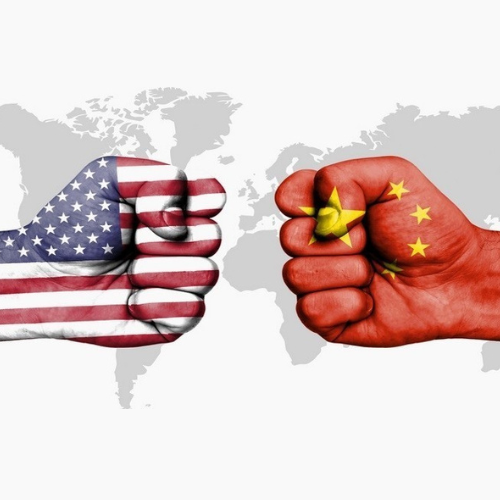In a significant escalation of tensions between China and the United States, China has announced a ban on the export of several critical materials to the U.S. This decision comes as a direct response to U.S. sanctions that target Chinese companies involved in the semiconductor industry. These materials, including gallium, germanium, and antimony, are essential for making advanced technology like computer chips, solar panels, and military devices. This move marks a new phase in the ongoing trade and tech war between the two nations.
What is Being Banned?
The Chinese government is imposing strict controls on the export of gallium, germanium, antimony, and several other materials that are crucial for high-tech manufacturing. Gallium and germanium are both metals that are needed to produce semiconductor chips, which are at the heart of most modern electronics, from mobile phones to electric cars. Antimony, on the other hand, is used in a range of products, including batteries, ammunition, and even fire-retardant materials.
This ban is part of China’s effort to protect its economic interests after the U.S. expanded its restrictions on Chinese tech companies. The U.S. government has already placed hundreds of Chinese companies on an “entity list,” meaning these companies are restricted from buying advanced technology from the U.S. These materials are not just important for making everyday electronics but also for military technologies, which is why they are considered so valuable in the global trade system.
China’s Retaliation
The Chinese government’s decision to ban exports of these materials is seen as a response to U.S. actions. In July 2023, China announced that exporters would need special licenses to sell gallium and germanium to the U.S. This was a first step, signaling that China might take action in response to the growing pressure from the U.S. on its tech industry. In August, China also placed restrictions on the export of antimony, another important material for both civilian and military purposes.
US Semiconductor Sanctions Spark Fierce Retaliation Threats from China
Now, the latest move includes not just gallium, germanium, and antimony, but also materials like graphite and super-hard materials, which include synthetic diamonds. These materials are used in industries ranging from electronics to automotive manufacturing and even defense. By restricting these exports, China is sending a strong message to the U.S. that it will no longer tolerate these sanctions without pushing back.
Impact of the Ban on U.S. Industries
The U.S. relies heavily on China for the supply of these critical materials. According to reports, about half of the U.S. supply of gallium and germanium comes from China. In 2022 alone, China exported more than 23 metric tons of gallium to the U.S., and it produces around 600 metric tons of germanium annually. These numbers highlight how dependent the U.S. is on Chinese exports for its high-tech industries.
With these materials no longer available, U.S. companies may struggle to find alternative sources. This could lead to disruptions in the production of products like smartphones, electric vehicles, and other advanced technologies. Furthermore, these materials are not easy to replace, as they are produced in very limited quantities and require specialized extraction and processing methods.
China Warns US Over Taiwan President Lai’s Visit and Arms Sale
Reactions from Chinese Industry Groups
In response to the U.S. sanctions, several Chinese industry groups have spoken out. The China Semiconductor Industry Association, for example, warned that U.S. chip products would no longer be considered safe and reliable. They also expressed concern that the sanctions were causing supply chain disruptions and inflating costs for American businesses. The China Association of Automobile Manufacturers echoed similar sentiments, criticizing the U.S. for using national security as a reason for the restrictions, which they argued disrupts fair competition and harms the global economy.
While China’s actions are a retaliation to U.S. sanctions, they also reflect the growing tensions between the two countries over technology and trade. The two nations have been locked in a dispute over access to advanced technologies for years, and this latest move shows that China is willing to use its control over key materials as leverage in this ongoing conflict.
A Warning to the U.S.
The Chinese government has emphasized that its decision is aimed at protecting the country’s “rights and interests,” but it also serves as a warning to the U.S. about the potential consequences of continuing its aggressive stance on Chinese tech companies. The ban on these critical materials could have wide-reaching effects on industries across the globe, particularly in the U.S., where many companies depend on these supplies for their high-tech products.
As the trade war between the U.S. and China intensifies, the global tech industry will need to brace for further disruptions, with both countries looking for ways to secure their economic and technological dominance.


